Watch the Video
We’re delighted to share our Annual Review 2020— A Year Like No Other: Communities on the Frontline, as a video.
Download the PDF
Our annual report is also available as an online summary.
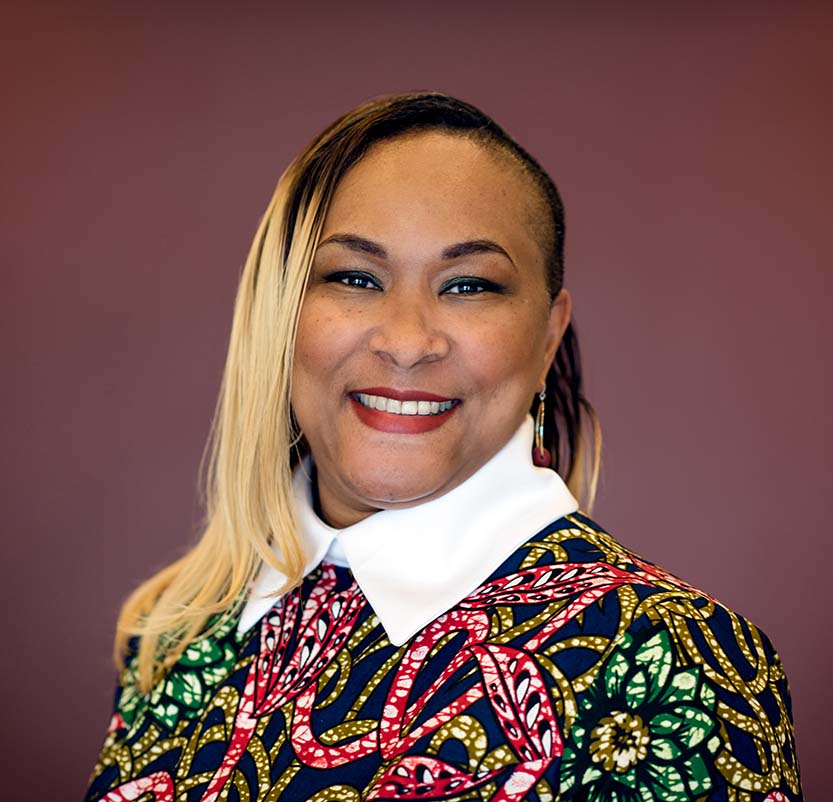
Dear Friends,
In March 2020, we realized we were headed towards another pandemic that would alter our lives in fundamental ways. More than a year later, we are still grappling with the fall-out from COVID-19, which has resulted in close to 4 million deaths and an unknown number of people struggling with ongoing symptoms post-infection. The virus left many of us stranded in place, cut off from families, friends, and essential services. While the development of vaccines brought hope, it also brought despair as those of us in the global South wait for them to become available at the same speed and efficacy as in rich countries.
But the brightest hope to emerge from 2020 was the way that COVID-19 revealed the strength and resilience of communities. From the beginning, ITPC’s Global Activist Network members mobilized to take care of people living with HIV in their local areas. Through the network, we were the eyes and ears on the ground. We documented disruptions to healthcare and medicines and alerted those in power to respond. We held regular virtual briefings to reach people living with HIV with essential information. We jumped headfirst into advocacy around fair vaccine access, building on our track record of working to make medicines affordable.
Our members were afraid for their own health, but they still went outside their homes to deliver antiretrovirals (ARV) to people who could not access them. HIV taught us about stigma, fear, and the necessity for courageous action. I would like to dedicate this report to members of ITPC’s Global
Activist Network, who worked tirelessly in 2020 to build a world that respects the right to health.
In solidarity,
Solange Baptiste
ITPC Executive Director
A Global Activist Network
- Treat People Right
- Make Medicines Affordable
- Watch What Matters
WHO WE ARE
The International Treatment Preparedness Coalition (ITPC) is a global network of people living with HIV, community activists, and their supporters working to achieve universal access to HIV treatment and other life-saving medicines.
ITPC is an issue-based coalition. The core of our work is Treat People Right. ITPC actively advocates for treatment access through three strategic focus areas:
- Make Medicines Affordable
- Watch What Matters
- Build Resilient Communities
Mission, Vision & Values
Our Mission
Our Vision
Our Values
- Communities of people most affected by a particular disease are at the center of
the response. - There should be equity in treatment access.
- We work in solidarity as a global movement.
- We are transparent about our finances and how we work.
- We are accountable to the communities we serve.
COURAGEOUS ACTION WITHIN A NEW PANDEMIC
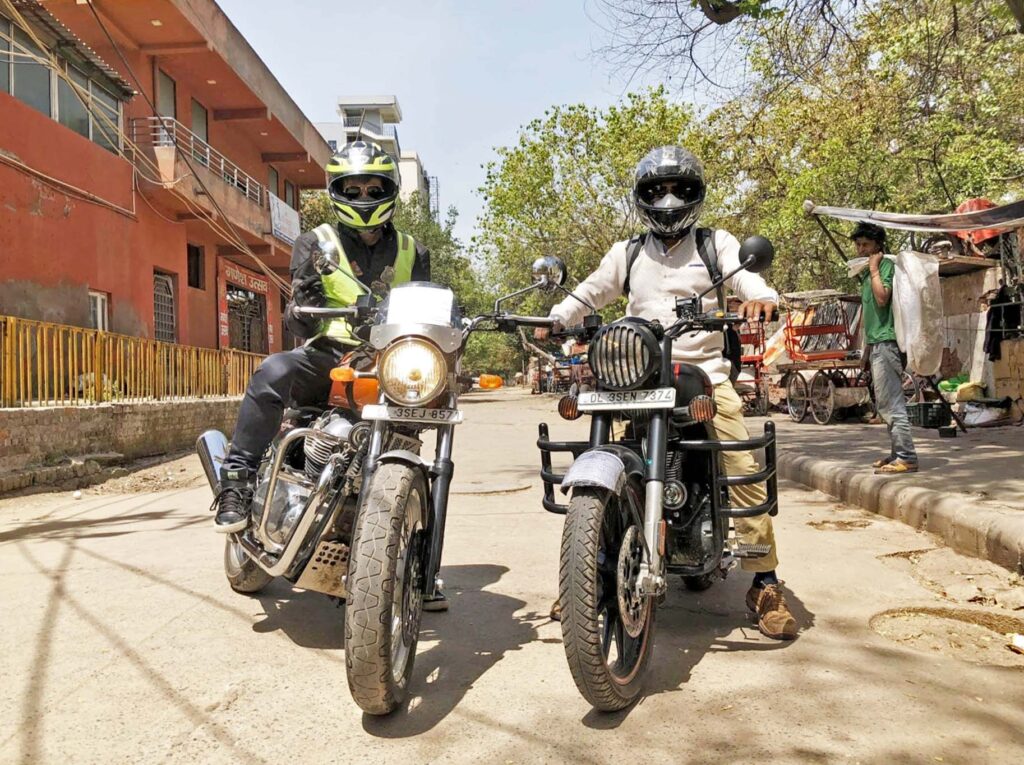
LOON’S STORY
Delhi Network of Positive People and ITPC Global Activist Network member
When I first heard about this new coronavirus in China, I knew it was only a matter of time until it reached India. I thought, what will happen to our community of people living with HIV, who need to take ARVs every day? How will they get their medicine?
I followed the news closely, and before the Indian government announced a lockdown, I closed our office in New Delhi so that our staff could stay home. The next day, the national lockdown was announced. Right away we got to work.
We assembled a team that could help deliver medicine to people who were not allowed to leave their homes. We put flyers up across town with five of our mobile numbers so that people could call us if they were missing medicine. We made up a uniform so that we looked official and the police would not harass us. Then we delivered HIV and hepatitis C medicine across the city on our motorbikes.
We reached about 300 people who were stuck at home. We had to carry our own food and water because nothing was open.
When ITPC Global saw what we were doing, they supported us without even asking. They gave us grants for personal protective equipment for our outreach team on motorbikes and also to buy rice, oil, and sugar for patients who were not eating because ARVs don’t work if you don’t take them with food.
Some patients were very hard to reach. One time, we traveled about five hours one way by car to the interior of Haryana to deliver 15 days’ doses of third-line ART because the medicine was out of stock there.
It was scary going out every day. When I came home to my family, I told them not to come near me. I soaked my clothes in disinfectant and hung them on the balcony to dry in the sun. But we need to make ourselves available in times of crisis if we call ourselves a community organization.
OUR IMPACT IN NUMBERS
COVID-19 RESPONSE
GRANTS DISBURSED
US $1,826,809

small grants for grassroots action and campaigns

RESOURCES CREATED
Community ORganizing
Community ORganizing
COVID-19 Resources
Here are some additional highlights from ITPC’s response to the COVID-19 pandemic.
ASKING FOR A FRIEND: A CLOSER LOOK AT TESTING, COMMUNITY MONITORING AND PRICING DURING COVID-19
DIFFERENTIATED SERVICE DELIVERY (DSD) AND THE COVID-19 RESPONSE
COMMUNITY VOICES ON COVID-19
COVID-19 ROUNDTABLE SERIES: TESTING, PRICING AND ACCESS STILL MATTER
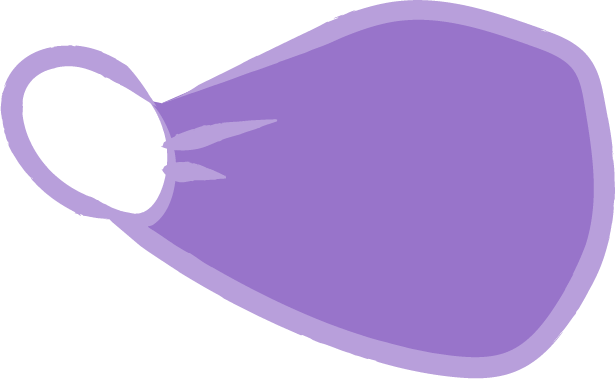
A PANDEMIC IS NOT
AN OPPORTUNITY
FOR PROFIT
LET’S TALK ABOUT VAX: COVID-19 VACCINES
MORE ARTICLES AND PUBLICATIONS
- Malaysia and Brazil in the Covid-19 response
- Impacts of Covid-19 on women living with HIV who use drugs in Nepal
- Community-led monitoring of COVID-19’s effects on service delivery and lived experiences of people living with HIV and TB in China, Guatemala, India, Nepal and Sierra Leone
- Rapid Assessment of the impact of COVID-19 on people living with HIV in Indonesia, Uganda, Ukraine and Vietnam
- Training the next generation of treatment activists in Central America
- Moroccan civil society calls for compulsory licence on Gilead’s possible COVID-19 drug
- Thai civil society opposes patent on an influenza drug, now used for COVID-19
- COVID-19 & TB: Why whether you live or die is a matter of justice, not science
ORGANIZING FOR CHANGE
TREAT PEOPLE RIGHT

ITPC conducted rapid assessments for people living with HIV in Indonesia, Uganda, Ukraine, and Vietnam. Results showed the cross cutting negative effects of the COVID-19 pandemic on access, availability, and affordability of HIV treatment and care. Common issues included:
- Clinics limiting their opening hours
- Antiretroviral stock-outs
- Inability to travel to collect ARVs and other medicines
- Fear of accidental disclosure
- Shortage of viral load testing
- Increased out-of-pocket costs
- Food insecurity
- Physical and gender-based violence
A collaboration with the sexual and reproductive health (SRHR) organizations, Salamander Trust and Making Waves, assessed how COVID-19 affected access to SRHR and HIV services for women and girls living with HIV in Southern and East Africa. The authors interviewed 50 women in Botswana, Eswatini, Kenya, Namibia, South Africa, South Sudan, Tanzania, Uganda, Zambia, and Zimbabwe. Findings included:
- Violence against women and girls increased in homes and communities.
- Digital communications excluded many women and girls, heightening their isolation during the pandemic.
- Women and civil society organizations were excluded fro national COVID-19 decision-making.
- World Health Organization (WHO) technical guidance did not respond to the gender challenges of COVID-19. Word searches of the WHO website for COVID+Women, COVID+HIV, and COVID+violence brought up no results.
MAKE MEDICINES AFFORDABLE
ITPC’s work to Make Medicines Affordable involves 27 in-country partners united towards removing unjustified access barriers and preparing the market for the entry and uptake of new health products. The campaign leverages evidence-based, intellectual property interventions to achieve price reductions for ARVs, TB medicines, and direct-acting antivirals in our target countries. We use Trade-Related Aspects of Intellectual Property Rights (TRIPS) flexibilities and catalyze demand at the national level to prepare an enabling environment for the introduction of optimal generic medicines. In 2020, we expanded our disease scope to include the COVID-19 pandemic. Despite restrictions related to the pandemic, our in-country partners held policy dialogues virtually with key stakeholders, national institutions, and the pharmaceutical industry, seeding ongoing conversation.
Learn more:

Impact
- We reduced the prices of 11 medicines in Belarus, Brazil, Guatemala, Moldova, Russia, Thailand and Ukraine. This generates US$102.6 million in projected health expenditure savings, doubling our 2019 projected savings of US$57.4 million.
- A total of 21 patent oppositions were filed, including six on potential medicines to treat COVID-19.
- Two countries, Belarus and Kazakhstan, received voluntary licenses for dolutegravir, expanding access to improved HIV treatment while preserving national health budgets.
- The consortium submitted 11 draft legal or policy amendments that contain public health safeguards in the following countries: Argentina, Armenia, Brazil, Guatemala, Moldova, Russia, Thailand, and Ukraine. For example, Ukraine’s Parliament has adopted a new draft intellectual property law that is more favorable to access to treatment.
- A peer-reviewed journal article written by Andrew Hill, Junzheng Wang, Jacob Levi, Katie Heath, and Joseph Fortunak, titled “Minimum costs to manufacture new treatments for COVID-19”, was published in the Journal of Virus Eradication in April 2020.
ITPC
WATCH WHAT MATTERS
ITPC’s community-led monitoring and research initiatives aim to gather data on access and quality of HIV treatment globally and hold decision-makers accountable to the communities they serve. Through our flagship community treatment observatories (CTOs), people living with HIV, their networks, and organizations monitor the quality of health services and medicines in their local areas. They then sound the alarm when drugs are missing or when human rights are violated. ITPC’s community-led monitoring approach increases accountability of national HIV programs.
In 2020, we pivoted to monitoring the access of people living with HIV to care and treatment, as well as health and human rights experiences, during the COVID-19 crisis. We supported organizations to conduct community-led monitoring of urban health facilities in China, Guatemala, India, Nepal, and Sierra Leone. ITPC worked closely with our partners, all of which have strong relationships with networks of people living with HIV and/or TB, and staff already on the ground. Partners include AIDS Care China (ACC), ITPC-Latin America and the Caribbean (ITPC LATCA), the Global Coalition of TB Activists (GCTA), DRISTI (“Vision” – Nepal), and the Network of HIV Positives (NETHIPS) in Sierra Leone.

ITPC’s research revealed that more adolescents and young people were dropping out of HIV health services during the COVID-19 crisis. ITPC and its partners are using this data to advocate for the use of virtual (for example, SMS and social media) tracking and tracing to recover these clients into care.
- The number of people newly initiated on ART declined at five health facilities in Guatemala, from 106 in October 2020 to 54 in December 2020, an overall reduction of 49%.
- In Sierra Leone, the number of ART initiations for the monitoring period averaged 106 across five health facilities, increasing from 97 in September 2020, reaching 119 in November 2020 and 105 in December 2020.
- Across all facilities, people faced obstructions to HIV testing and treatment facilities, particularly with lockdown regulations restricting freedom of movement and instituting new regulations, which limited access to public healthcare as COVID-19 superseded other medical concerns.
- ARV stock-outs were a persistent problem; they were documented during 16 out of 36 (44%) monthly observations across clinics in China, Guatemala, and Sierra Leone, highlighting the need for more robust buffer stock to avoid future disruptions to ART access.
This data resulted in a concrete advocacy agenda underlining the urgency for:
- Expanded access to digital tools, such as eHealth and telemedicine
- Differentiated services, including for young people
- Scale up of multi-month dispensing of ARVs
- Community ART delivery to people at home
- Protecting the confidentiality and disclosure rights of people living with HIV and TB
Learn More:
- ITPC CLM guidance highlighted in UNAIDS publication
- Dristi Nepal rapid assessment
- Regional Community Treatment Observatory in West Africa
- Doing Things Differently: Southern Africa Community Treatment Observatories
- Global Survey on Access to and Quality of HIV Treatment and Care
- COVID-19’s impact in Brazil
- COVID-19’s impact in Malaysia
VALUE FOR MONEY
“2020 WAS NOT EASY; IT PUSHED US TO BE FLEXIBLE AND CREATIVE IN THE FACE OF COVID-19. WE ARE PROUD TO HAVE ACHIEVED QUALITY PROGRAM OUTCOMES AND FINANCIAL STABILITY IN A TOUGH ENVIRONMENT.”
— Collen Ngundu, Director of Finance, ITPC Global
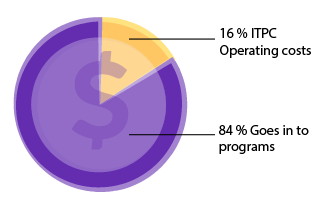
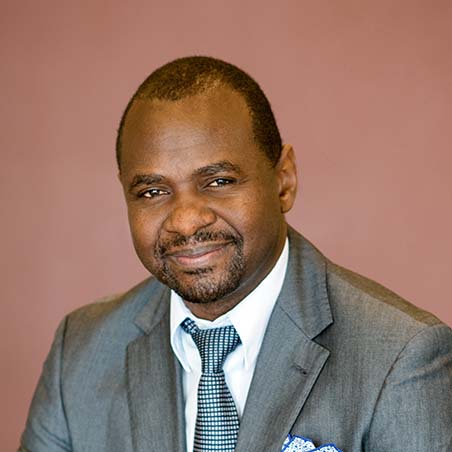
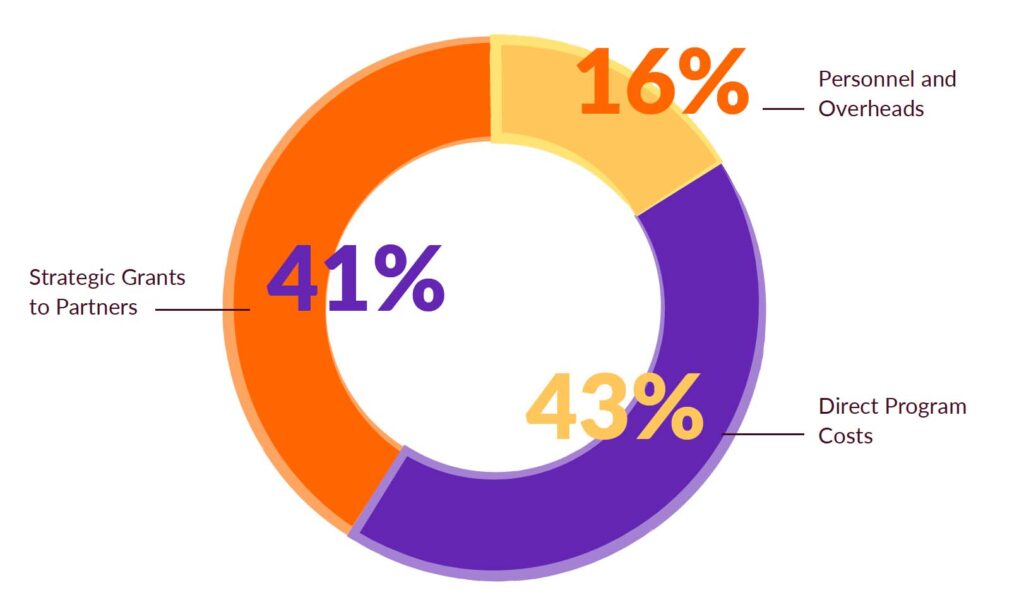
Despite the COVID-19 pandemic, 84% of donor funding went to direct program costs and our partners on the ground through strategic grants. For every dollar donated, only 16 cents went towards overheads, making ITPC a high-impact strategic investment. ITPC’s prudent financial and business management ensures that our finances remain stable and gives us the freedom to focus on our core mission to Treat People Right.
Balancing the need to be financially prudent with meeting the needs of the communities, we achieved the financial results set out in ITPC Global’s audited summary financial statement for the year ending December 31, 2020.
Every Dollar Counts!
Whether you make a one-time contribution, or provide ongoing support, every dollar counts.
Donors
Companies
If you’re from the private sector, work with us to express and expand your corporate social responsibility.
Governments
If you’re a government official, let us work together and create a standout model for effective health systems.
Funders
ITPC is grateful to current and new donors for their consistent support that enabled us to meet our strategic objectives and core goal of Treating People Right.
- Addie Guttag
- AIDSFonds
- African Society for Laboratory Medicine: Laboratory Systems Strengthening Community of Practice (LabCoP)
- Bill & Melinda Gates Foundation
- Bridging the Gaps II
- The Global Fund to Fight AIDS, Tuberculosis and Malaria
- ICAP at Columbia University’s Mailman School of Public Health
- Levi Strauss Foundation (LSF)
- Open Society Foundations (OSF)
- Robert Carr Fund (RCF)
- Stop TB Partnership
- International Association of Providers of AIDS Care (IAPAC)
- UNAIDS
- UNITAID
- ViiV Health
Global Team
We are a small, dedicated team and we are proud to commit our energy, expertise, and creativity to this important work each and every day. •Solange Baptiste, Executive Director
- Wame Jallow, Director of Global Programs and Advocacy
- Collen Ngundu, Director of Finance
- Othoman Mellouk, Intellectual Property and Access to Medicines Lead
- Alain Manouan, Community Monitoring Lead – until December 2020
- Bactrin Killingo, Treatment Education Co-Lead
- Tracy Swan, Treatment Education Co-Lead
- Helen Etya’ale, Program Officer
- Gerard Best, Organizational Communications
- Mercy Motasi, Executive Assistant
- Khathutshelo Musekwa, Accountant
- Ilene Boshielo, Finance and Administrative Assistant
- Sergiy Kondratyuk, Unitaid Program Manager
- Detrich Peeler, Unitaid Partnership Officer
- Morgane Ahmar, Unitaid Partnership Officer
- Leonard Moyo, Unitaid Grants and Compliance Manager
- Nothando Moabi, Unitaid Grants and Compliance Officer
- Pedro Garcia, Monitoring & Evaluation and Research Manager – until May 2020 •Gregg Gonsalves – until December 2020
Board Members
We thank the Global Board for their continued support and invaluable guidance through these tough times.
- Ava Avalos, Chair
- Nompumelelo Gumede, South Africa, Vice Chair
- Polokoetsile Pedro Motau, Treasurer
- Jarasa Kanok, USA
- Karyn Kaplan, USA
- Nathaniel Wong, USA
- Keno Sadler, USA
- Cindy Kelemi, Botswana
- Gregg Gonsalves – until December 2020
